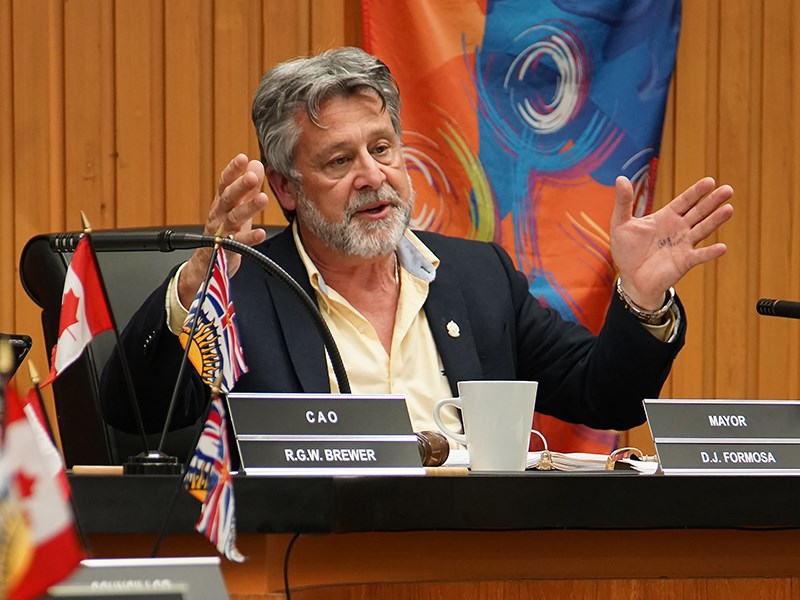City of Powell River councillors have adopted the remuneration bylaw that will include compensation for Canada Revenue Agency (CRA) adjustments and cost of living increases.
At the council meeting on Thursday, May 2, council voted in favour of the remuneration and reimbursement bylaw, with councillor Cindy Elliott opposed.
During discussion of the motion, Elliott said she is in favour of moving toward better salaries for city council members, but in the future, to benefit the next council, and not so much this one. She said she is in favour of the adjustment to compensate for tax adjustments, where the CRA has eliminated the one-third tax-free portion of their stipend for expenses.
Mayor Dave Formosa said the increases after this year, from when he understands, includes cost of living, plus adjusting the ratio of the mayor’s stipend to that of the councillors, from 2.5 times to 1.9 times over a five-year period, which means the mayor would make 1.9 times the amount of a councillor in 2023. The mayor said this seems to be the norm in a majority of communities.
Councillor George Doubt said the CRA ruling changes the situation for council members. Now, 100 per cent of councillor income is taxable and everyone at the council table is getting “a serious reduction in pay.”
He said it is possible for people who have sufficient income to sit as council members and not have to consider what the pay for council is going to be. Doubt said he has the means to sit as a council member, but if the job is restricted only to people who have enough independent income that they did not rely on anything from being a member of council, people would be excluded from office.
“We need to encourage anybody who is a member of the community to be able to participate in local government," said Doubt. "That’s why I’m supporting this, because if it’s just a matter of what I wanted, I would be sticking with what we’ve got before. In order to have good government, you have to have an incentive and make it an ability for anyone who wants to participate.”
Formosa said he has struggled with this and is upset with the prime minister for changing the tax law.
“It’s a terrible thing to do to lay such a thing on local government folks,” Formosa said. “I really don’t know what his motive was. I don’t understand it.”
He said looking at the first increase, which is the big increase, that just brings council members on par with what they used to make.
Formosa said he works at the job more than full time and he knows the councillors work more than half time at their positions.
“These people work very, very, very hard,” said Formosa. “If you look at the remuneration they get, they are there for the community, it’s not for the money.”
The vast majority of municipal councils have done or are doing what Powell River was proposing, said Formosa. He said he thinks the councillors earn every cent of what they make.
“I’m in the same boat as councillor Doubt,” he added. “It actually costs me a fair amount of funds to be here, but I’m here to serve my community, and I want to know that the next mayor who comes will have the ability to work full time. This is easily a full-time job.”



